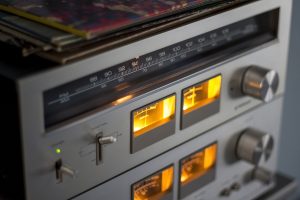A question commonly asked to us here at RF Exposure Lab is “What is SAR testing?” Googling this question isn’t particularly helpful, because you’ll likely be provided with results that may leave you with more questions than answers. To clear up the confusion, we wanted to use our expertise to provide you with a satisfactory explanation of what SAR testing is and how it’s performed.
Defining SAR
If you’re wondering, “What is SAR?” the first thing you should know is that it stands for Specific Absorption Rate. SAR is the unit of measurement for the quantity of Radio Frequency (RF) that is absorbed by the body when a person uses a wireless device within 20 cm of the body. SAR testing describes both the amount of RF energy absorbed by the body from the wireless device and the rate at which it’s absorbed by the tissue exposed to it. This is because when matter is exposed to radiation, only part of the radiation is absorbed while the rest simply passes through.
SAR provides a simple and clear way to measure the RF exposure characteristics of wireless devices to guarantee that they meet the FCC’s safety guidelines. The SAR value is indicated by watts per kilogram (W/kg) or milliwatts per gram (mW/g). RF Exposure is a measure of both the electric and magnetic field strength and power density for transmitters operating at frequencies ranging from 300 kilohertz (kHz) to 100 gigahertz (GHz).
Wireless devices are required to be evaluated to meet the RF exposure limits that have been determined by the FCC and other federal governmental agencies around the world.

What is SAR Testing?
Answering the question of “What is SAR testing?” also involves explaining how SAR testing is conducted.
Using regulated models of the human head and body that are filled with liquid to mimic the way RF is absorbed by different tissues in the body, wireless devices are tested in a way that simulates the different ways users would typically hold them. In addition to this, these devices are operated at their highest power level in all the frequency bands in which they operate while they are tested.
For example, a cell phone would be tested in multiple positions against models of the human head and body to imitate the way they are held by users, such as up to the side of the head. While placed in these different positions, a robotic probe measures the electric field at specific locations within the model head and torso. While all of this data is submitted to the FCC, only the highest SAR values for each frequency band are included in the final report to show that the device conforms to the FCC’s RF exposure guidelines.
When a device is approved by the FCC it means that the device will not expose users to levels of RF exposure higher than what is allowed by federal guidelines.
Which Products Require SAR Testing?
Now that you’re familiar with RF energy, what SAR is, how SAR testing is conducted, we’ll discuss how RF energy is used, and what kinds of products require SAR testing.
RF energy is usually used to provide telecommunications services. This includes the following:
- Radio and television broadcasting
- Cellular phones
- Personal communications services
- Business radio
- Radio communications for police and fire departments
- Amateur radio
- Satellite communications
It is also sometimes used for non-telecommunication products such as microwave ovens, radar, and industrial heating and sealing. RF energy is also used for medical reasons, such as magnetic resonance imaging (MRI) and diathermy.
Get SAR Testing From RF Exposure Lab
We go above and beyond to make sure our clients understand what we do and assist them through the regulatory maze that makes up SAR testing. Through our unique expertise and commitment to our clients, we guarantee accurate SAR testing and results.
We offer SAR testing for a multitude of wireless merchandise including cell phones, laptops, tablets, medical products, survey equipment, wireless modules, and much more.
If you’re looking for SAR testing that is provided with speed, accuracy, expertise, and integrity, contact us to get a quote for our services.
